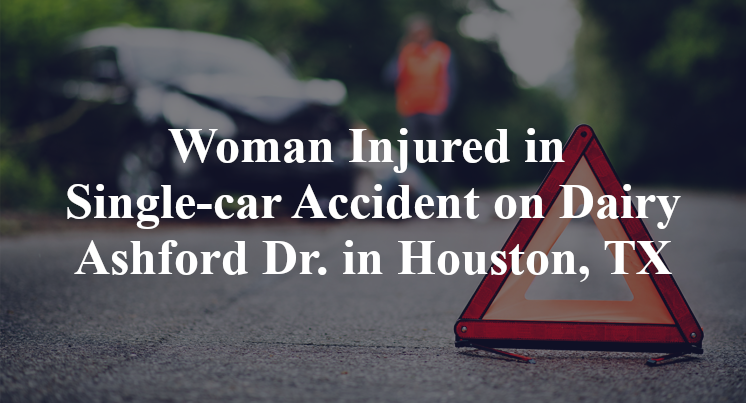Woman Injured in Single-car Accident on Dairy Ashford Dr. in Houston, TX
Harris County, TX — August 16, 2024, a woman was injured due to a single-car accident at approximately 2:45 p.m. along Dairy Ashford Drive.
According to authorities, a 41-year-old woman was traveling in a southbound Honda Accord on Dairy Ashford Drive in the vicinity north of the Fern Drive intersection when the accident took place.

Officials indicate that, for as yet unknown reasons, the Honda failed to safely maintain its lane of travel. It was consequently involved in a single vehicle collision in which it apparently struck a tree in the center median.
The woman reportedly sustained serious injuries as a result of the wreck; she was transported to a local medical facility by EMS in order to receive necessary treatment. Additional details pertaining to this incident—including the identity of the woman—are not available at this point in time.
Commentary by Attorney Michael Grossman
When a vehicle leaves its lane and crashes into a fixed object on a clear afternoon, it’s tempting to assume distraction or driver error. But when serious injuries result and the cause isn’t immediately clear, it’s essential to examine whether every contributing factor has been considered.
Did the authorities thoroughly investigate the crash?
A single-vehicle crash into a median tree calls for more than a basic write-up. Did investigators document the vehicle’s trajectory, measure braking distance, or look for evasive maneuvers? These details can help determine whether the driver had a chance to respond or if the vehicle veered suddenly. Without a full scene reconstruction, it’s difficult to say whether the incident was due to driver inattention or something more complex.
Has anyone looked into the possibility that a vehicle defect caused the crash?
When a car suddenly fails to stay in its lane, a mechanical issue should be on the list of possibilities. Did the Honda Accord suffer a brake malfunction, a steering problem, or an issue with its lane-keeping assist system? Modern vehicles rely heavily on electronic stability systems, and a fault in any of these areas could contribute to a loss of control. A thorough mechanical inspection is the only way to uncover these potential failures—and if it wasn’t done promptly, that opportunity may already be gone.
Has all the electronic data relating to the crash been collected?
Many modern Accords are equipped with event data recorders that track steering input, speed, and braking in the seconds before a crash. This data can confirm whether the driver attempted to correct course or whether the vehicle failed to respond. Any external surveillance footage—such as from nearby buildings or traffic cameras—could also help clarify the vehicle’s path and speed before impact.
Crashes that appear simple on the surface often have more layers underneath. The only way to reach a meaningful conclusion is by digging into those details before they’re lost or overlooked.
3 Key Takeaways:
- Single-vehicle crashes should be reconstructed to assess vehicle path and potential evasive action.
- Mechanical issues like steering or brake failure must be ruled out through inspection.
- Onboard vehicle data and local footage can help verify the driver's input and vehicle behavior before the crash.

*We appreciate your feedback and welcome anyone to comment on our blog entries, however all visitor blog comments must be approved by the site moderator prior to showing live on the site. By submitting a blog comment you acknowledge that your post may appear live on the site for any visitors to see, pending moderator approval. The operators of this site are not responsible for the accuracy or content of the comments made by site visitors. By submitting a comment, blog post, or email to this site you acknowledge that you may receive a response with regard to your questions or concerns. If you contact Grossman Law Offices using this online form, your message will not create an attorney-client relationship and will not necessarily be treated as privileged or confidential! You should not send sensitive or confidential information via the Internet. Since the Internet is not necessarily a secure environment, it is not possible to ensure that your message sent via the Internet might be kept secure and confidential. When you fill out a contact or comment form, send us an email directly, initiate a chat session or call us, you acknowledge we may use your contact information to communicate with you in the future for marketing purposes, but such marketing will always be done in an ethical way.